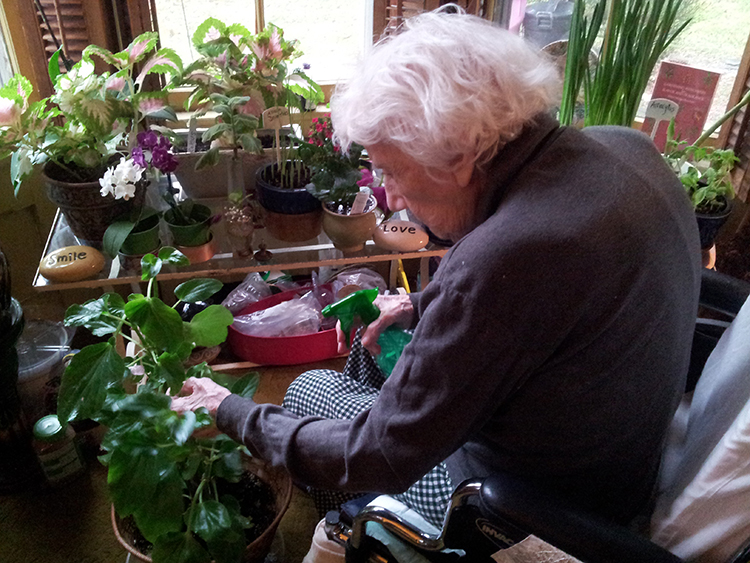Home > New Jersey > New Jersey Agritourism > Therapeutic Gardening
Therapeutic Gardening

There’s something soothing about working in a garden. The feeling of dirt in your hands and watching a plant flourish bring a sense of serenity and fulfillment.
The therapeutic practice of gardening has proven to have significant physical, social and cognitive benefits, and has been specialized in the field of horticultural therapy.
“Horticultural therapy is the process of connecting people and plants through vocational, social and therapeutic programs under the direction of a Horticultural Therapist,” says Laura DePrado, horticultural specialist and therapy practitioner with Final Touch Plantscaping LLC.
The seeds of horticultural therapy began to sprout in 1812 when Benjamin Rush, the “Father of Psychiatry,” signer of the Declaration of Independence and University of Pennsylvania professor, published his discovery that patients with mania who worked in gardens had better recovery rates than those who did not.
In New Jersey, the nationally ranked horticulture industry contributes to the success of this practice.
“New Jersey’s nursery and greenhouse industry produces the high-quality plants required to meet the needs of this small but growing discipline,” says Dominick Mondi, executive director of the New Jersey Nursery and Landscape Association.
In honor of its significant impact, the state Senate voted unanimously to name the third week in March “Horticultural Therapy Week.”
“Designating a week each year to raise awareness of horticultural therapy will hopefully expand opportunities for more people to take advantage of the many benefits it offers,” Senator Christopher “Kip” Bateman says. “Horticultural therapy is a time-proven practice that’s helped countless people from children to seniors to veterans to those with special needs.”
Horticultural therapy became a recognized professional field in 1973 with the inception of the American Horticultural Therapy Association.
“The American Horticultural Therapy Association (AHTA) is the only U.S. organization committed to promoting the practice of horticultural therapy as a dynamic human services modality,” says MaryAnne McMillan, president of the American Horticultural Therapy Association. “The AHTA advocates on behalf of the professional interests of horticultural therapy practitioners, host facilities, researchers and educators.”
With increased awareness, horticultural therapy can change the lives of countless patients.



